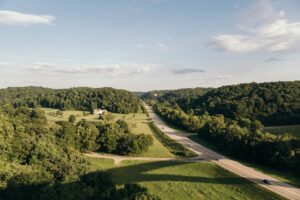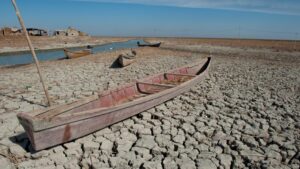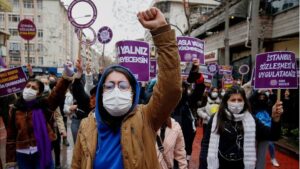For the past four years, I have called Franklin, Tennessee home. Its culture and idiosyncrasies have shaped my thinking and my values. In so many ways, although I have lived there for a relatively short time, it is the place that has most impacted who I am as a person and how I view the world around me. I can only imagine the same is true for others and that, regardless of the differences between where we live, “home” is influential no matter the particulars.
But if this is true, then what of the variety of experiences? Does geography determine difference, or are there universal factors that fashion us in ways that are often more similar than not?
To begin this exploration, I have decided to first compare the obvious- the physical environments in which we live. And, for this semester, I have chosen paradoxically to explore such ideas by contrasting small-town Tennessee with the Tigris-Euphrates Valley.
As a suburb of Nashville, Franklin is known for its rolling green hills and abundance of land.

Photo Courtesy of Visit Franklin https://visitfranklin.com/blog/your-guide-to-the-natchez-trace-parkway-in-franklin-tn/
Even while on a major highway, you are constantly surrounded by trees and the lush foothills of the Smoky Mountains. With a fairly temperate climate and adequate rainfall, the question of sustainability plays a limited role in the area, often only applying to questions of solar panels and electric cars. Never are there any concerns over survival or the securement of basic needs.
That is not the case in the region of the Tigris-Euphrates Valley.

Photo Courtesy of The Times https://www.thetimes.co.uk/article/iraqs-mighty-rivers-tigris-and-euphrates-will-soon-run-dry-q5h72g5sk
Although once a part of the fertile crescent, desertification has become an increasingly dire situation. Water shortage is even more critical. According to the New York Times, 40% of Iraq has been overtaken by desert sand and the continued water shortage in neighboring states has led to the spread of disease, the dislocation of peoples, and even violent conflict.
The contrast could not be more stark, and in such a case, it seems clear the apparent differences will result in widely varying thoughts on climate. For me, change for a more sustainable future is something that will understandably take time, the consequences not so immediate. For my peers in the Middle East, homes are being left behind, livelihoods are lost; the consequences are now, and immediate change is imperative.
In the environment, then, it is clear geography does dictate difference, But what of less visible factors, what of questions of culture and values?
For me, a defining part of my life, both growing up and today, is education. My mother spent the early years of my life researching schools to ensure we lived in the best district, one that would provide a solid foundation, one that would open doors to college. As a high schooler in Franklin, my views were influenced by the cultural expectation of moving away to college after graduation.
Here again, my peers in the Middle East face a very different reality. In Iran, primary school is only required for five years and, as the schools are segregated by gender, females only study the arts and humanities. In Turkey, educational prospects are better, but even with the attainment of the highest degrees, women in the region continue to face difficulties securing any form of meaningful employment.
So it seems, yet again, that differences have prevailed. But for all the disparities, I still discovered a common thread, one that, while varying in degree, connected life “here” and life “there”.
I discovered a common desire for change.

Image Courtesy of BBC https://www.bbc.com/news/world-europe-56516462
In states across the Tigris Valley, calls for women’s rights are increasing in volume. From marches in Turkey following the state’s withdrawal from an anti-violence treaty to protests in Iran regarding the mandatory donning of hijabs, young women have begun to fight for their equality. In the U.S., although women have many rights those in the Tigris Valley desire, there are still many pushing for more, from equality in pay to universal maternity leave.
Beyond women’s rights, there are many other arenas in which young adults are seeking betterment in the government and their communities. In this aspect, I found similarity to be more prevalent than disparity. Although I was raised in the sedate suburbs of the United States, and my peers have been raised in rural towns and desert cities of the Middle East, we have all grown up in an age of better information, one which has allowed us to see a broader picture of the world around us and to hope for change.
So, at the end of the day, it seems “home” is irrevocably impactful on the individual, and is impactful in different ways. Variances in location influence values and beliefs, but that does not mean it erases common experiences or values. We are all unique. We all see the world differently. But we also share hope, and that can be a truly unifying similarity.
September 19, 2023 at 1:00 am
You are right that young people are pushing for change and that information technology has helped. But there is a long, long history of popular campaigns, protests, organizing, and uprisings in the region, just as there is in the United States and elsewhere, and young people are often in the vanguard. These have sometimes led to radical shifts in national and regional politics, such as the Iranian Revolution.